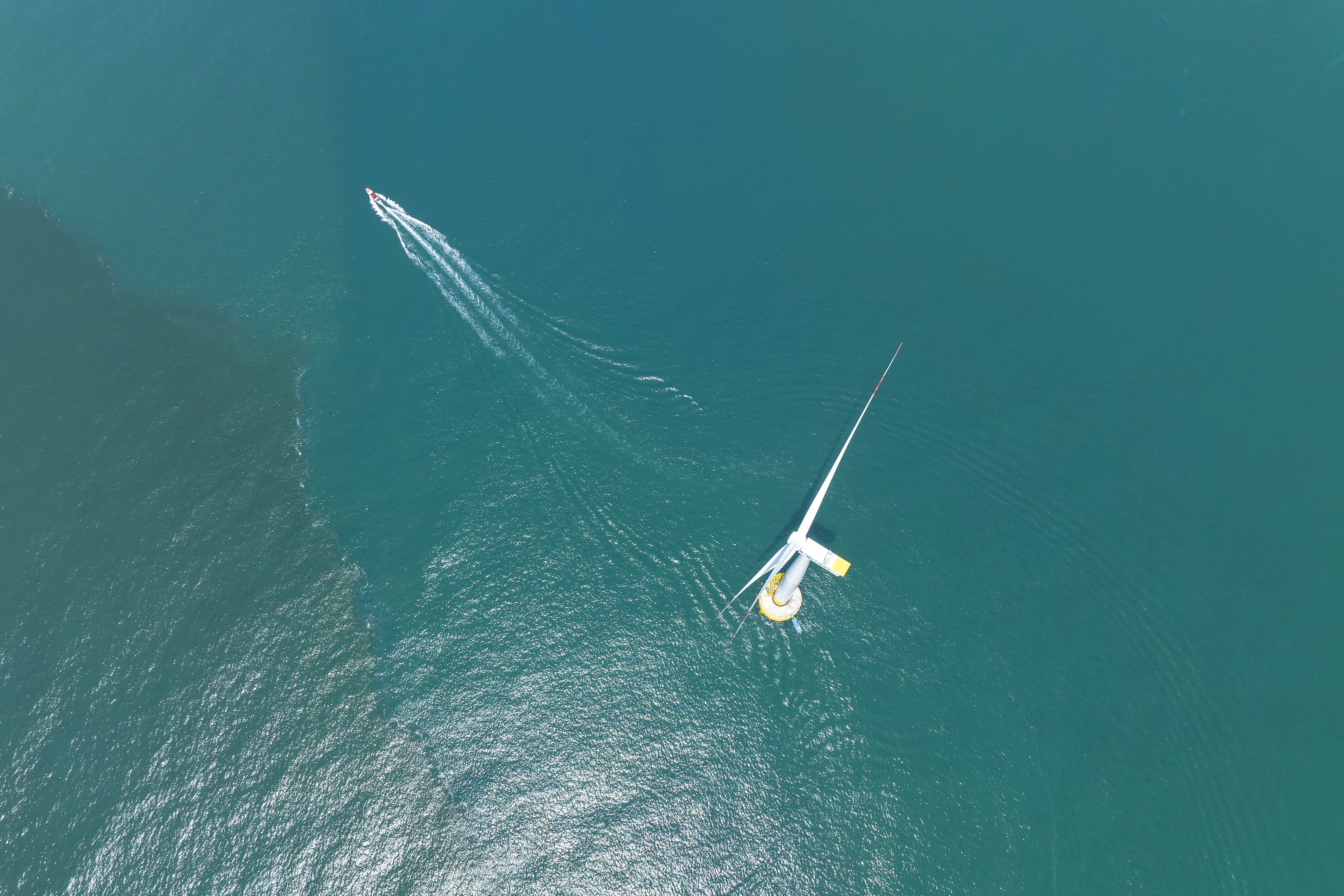EY refers to the global organization, and may refer to one or more, of the member firms of Ernst & Young Global Limited, each of which is a separate legal entity. Ernst & Young Global Limited, a UK company limited by guarantee, does not provide services to clients.
Wavering consumer confidence could stall the energy transition, new index finds
- Introducing the Energy Consumer Confidence Index: assesses consumer confidence toward their energy experience and the move to a low-carbon future
- As the impact of the energy transition hits home, consumer confidence drops, and lower-income demographics feel left behind
- Energy transition success hinges on building consumer confidence: cross-sector, cross-government collaboration required
The energy transition is in full swing, but are consumers convinced of the benefits? Wavering consumer confidence may stall progress, according to a new Energy Consumer Confidence Index (ECCI) published today.
Modeled on established consumer confidence indicators, the ECCI draws upon an EY survey of 36,000 residential energy consumers across 18 markets to understand consumer confidence today and three years from now, across five factors - the stability of energy providers’ business; value created by providers for consumers and their community; ability to access clean energy options; access to affordable energy; and regulator or government support for a fair and equitable energy transition. The results reveal some stark findings – consumers are struggling to see the benefits of the energy transition now and aren’t confident that things will improve in the future.
Greg Guthridge, EY Global Energy & Resources Customer Experience Transformation Leader, says:
"Energy consumer confidence is an important factor in driving actions and investment in new energy solutions, and will accelerate, or hinder, the breadth and momentum of the energy transition. If it continues to waver, net-zero pledges and clean energy ambitions are unlikely to be fully realized. This is a wake-up call for all players in the energy ecosystem who together need to address this challenge to secure a better energy future."
Energy transition progress and consumer confidence
To better understand the impact of the energy transition on consumer confidence, EY has mapped the ECCI against the World Economic Forum's Energy Transition Index, which benchmarks countries across 38 indicators of energy transition progress. The findings reveal an interesting correlation between countries' progress in the energy transition and energy consumer confidence. As a market progresses through the energy transition, consumer confidence first rises, reflecting positive sentiment around the possibilities of the future, before falling sharply. It seems that as the scale, complexity and disruption of the journey move from theory to reality, the impacts hit home.
The index also finds a link between consumer confidence, accessibility and affordability. For example, consumers on lower incomes have lower confidence, perhaps reflecting a feeling of being unable to access or afford new energy solutions, such as rooftop solar, home battery storage and electric vehicles. To date, a focus on higher-income consumers as the early adopters of these solutions has made it more difficult for people on lower incomes to participate in the energy transition and see its benefits.
Lessons from different market approaches
Certain markets have managed to avoid the link between energy transition progress and poor confidence. In France, a combination of market design, government interventions and nuclear power generation, has helped create a predictable and stable market structure. In the Netherlands, proactive community engagement and broad collaboration across society has given consumers’ confidence in their ability to access safe, affordable energy in the future. Similarly, Sweden stands out as leading the way thanks to new energy projects that deliver lower energy costs, new jobs, and increased tax revenue for local communities.
These examples demonstrate the importance of early consumer engagement in the value of the energy transition, as well as the need for government and regulators to create a predictable, stable foundation for the energy experience. Compare this with the UK, where consumers have borne the brunt of retail volatility, significant price increases and failing energy suppliers — and where confidence is low. Meanwhile, in the US, the energy transition is still at an early stage, and consumer confidence is relatively high. As investment and policy grows, however, a focus on maintaining consumer confidence must be a priority or clean energy ambitions may be at risk.
Collaboration around four key actions
The success of the energy transition depends on rebuilding consumer confidence now — and it will require a concerted cross-sector, cross-government effort. All players in the energy ecosystem need to come together to give consumers the energy experience they want.
Serge Colle, EY Global Energy & Resources Industry Market Leader, says:
“Many organizations are approaching the energy transition in isolation, with little thought for the holistic customer experience. Success will require leaders from across the energy ecosystem to step forward, break down barriers and simplify our collective energy transition journey.”
EY has identified four key actions that can encourage and support consumers to make behavioral changes and investments that will accelerate our journey to a better energy future: 1) Collaborate to create consumer-centric ecosystems; 2) Target lifestyles and individual actions; 3) Value the energy intangibles; 4) Master behavioural science.
For comprehensive insight, index analysis and more details of the four key actions, visit here.
-ends-
Notes to Editors
About EY
EY exists to build a better working world, helping to create long-term value for clients, people and society and build trust in the capital markets.
Enabled by data and technology, diverse EY teams in over 150 countries provide trust through assurance and help clients grow, transform and operate.
Working across assurance, consulting, law, strategy, tax and transactions, EY teams ask better questions to find new answers for the complex issues facing our world today.
EY refers to the global organization, and may refer to one or more, of the member firms of Ernst & Young Global Limited, each of which is a separate legal entity. Ernst & Young Global Limited, a UK company limited by guarantee, does not provide services to clients. Information about how EY collects and uses personal data and a description of the rights individuals have under data protection legislation are available via ey.com/privacy. EY member firms do not practice law where prohibited by local laws. For more information about our organization, please visit ey.com.
Related news
Wavering consumer confidence could stall the energy transition, new index finds
LONDON, 26 April 2023. The energy transition is in full swing, but are consumers convinced of the benefits? Wavering consumer confidence may stall progress, according to a new Energy Consumer Confidence Index (ECCI) published today.
Providers risk being left behind as energy becomes a personal priority for consumers – EY research
LONDON, 29 NOVEMBER 2022. Energy is now top of mind for consumers as it increasingly impacts their lifestyles and their wallet.
LONDON, 5 DECEMBER 2023 Changes to the energy system have reached critical momentum and will continue to accelerate over the next decade, but several handbrakes pose a serious risk and could stall progress, according to the new EY report, If every energy transition is different, which course will accelerate yours?
LONDON, 14 NOVEMBER 2023 Turbulent times in the offshore wind sector could change the way large-scale energy projects are built and funded in the future, according to the latest EY Renewable Energy Country Attractiveness Index (RECAI).
LONDON, 12 OCTOBER 2023. Mining executives rank Environmental, social and governance (ESG) as the biggest risk to their business, according to the EY Top 10 business risks and opportunities for mining and metals in 2024 report.
US gains ground in electric vehicle readiness, but China and Norway remain out in front
LONDON, 9 September 2023. China has retained the pole position when it comes to progress toward an electric vehicle (EV) future, according to the latest EY Electric Vehicle Country Readiness Index.








